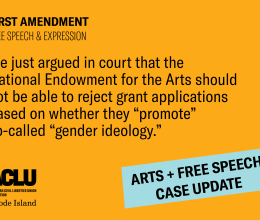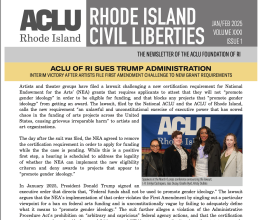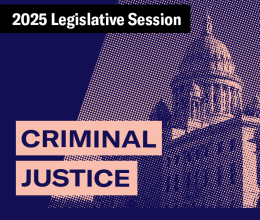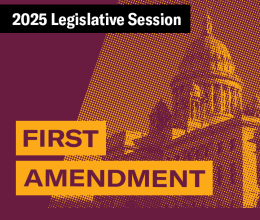The American Civil Liberties Union of Rhode Island expressed alarm today that, without any regulations governing the practice, the Providence Police Department has been videotaping peaceful demonstrations the past two years. Even more disturbingly, the videotaping has often focused on other people, including journalists, who are recording the events, rather than trying to document illegal activity, suggesting that the real purpose of the recordings is to intimidate protesters engaging in First Amendment-protected activity.
In a letter sent to Department of Public Safety Commissioner Steven Paré Thursday, the ACLU called on the police department to immediately halt this “unacceptable” practice, which “raises serious First Amendment concerns, particularly when that recording takes place absent any articulable reasonable suspicion that criminal activity is taking place.”
The letter cites five occasions over the last two years in which Providence police were seen recording protests and demonstrations, either by video camera or cell phone, even though the Department has no policies or procedures in place addressing the collection or use of these recordings. The events included a protest march from the Khmer Buddhist Center to the Public Safety Complex in January 2013; a rally by the Unitarian Universalist church in support of striking hotel workers in June 2014; and two high-profile demonstrations this past November and December in response to the grand jury decisions in Ferguson, Missouri, and New York City.
In response to an Access to Public Records Act request this past month, the ACLU learned that the Department has no applicable policies governing this surveillance. Further, although Department officials have been quoted as saying that the November and December marches were videotaped “in the event we need it for evidence,” a review of the police videos undermines that rationale.
Upon reviewing the police department recordings of the two most recent demonstrations, the ACLU found that the footage rarely caught incidents of arrests or possible illegal activity, but instead often focused on those peacefully participating in or observing the demonstration. Because of the surveillance, the letter stated, “demonstrators have since reported to the ACLU that they felt intimidated by these recordings and apprehensive about their potential use.”
The letter to Paré concludes by asking that such recordings be halted and that clear policies and procedures regarding the taking and use of video recordings by Providence police officers be adopted. The ACLU also requested that the Department explain why the department had engaged in the questionable recordings referenced in the letter.





